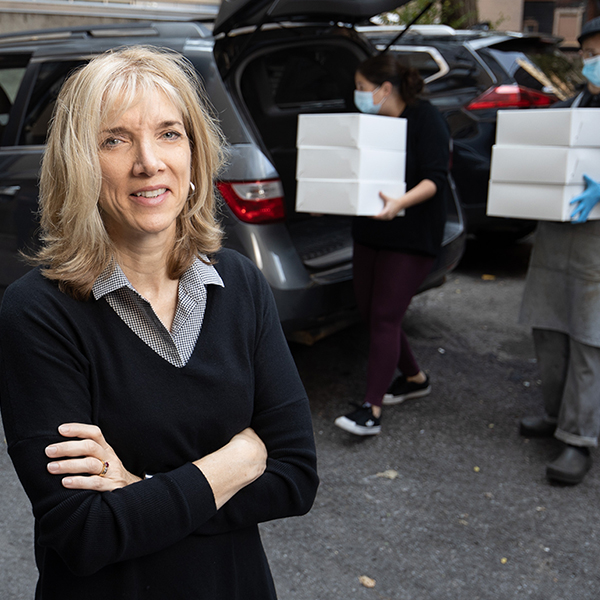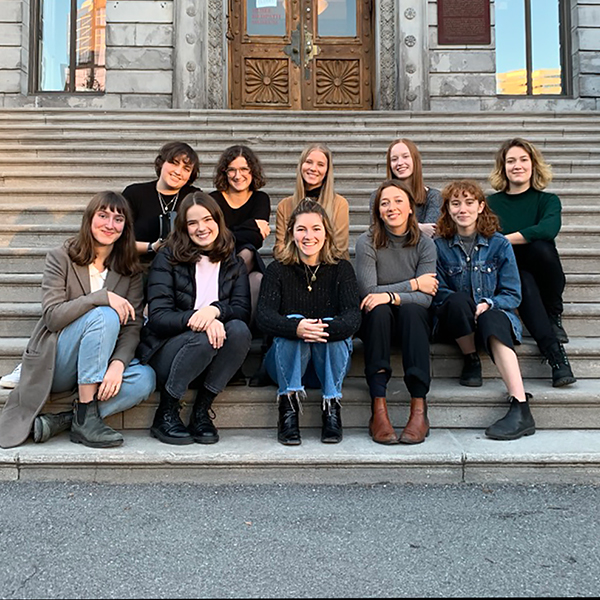From his modest desk in a co-working space in Manhattan, littered with the remains of his take-out breakfast and hundreds of pages of reports laden with data about human rights abuses, Amol Mehra, BCom’06, is trying to make the world a better place.
Along with his colleagues at the Freedom Fund, a non-profit that supports frontline efforts aimed at eradicating all forms of slavery, Mehra takes on the shadowy world of human trafficking, child labour and modern slavery.
Apart from being the Freedom Fund’s managing director for North America, Mehra recently took on a high-profile role as one of the commissioners for the international Financial Sector Commission on Modern Slavery and Human Trafficking, which was officially launched at the United Nations in September.
Mehra was already commuting regularly from his home in Washington, DC, to work at the Freedom Fund in New York. “You don’t even want to know,” he says with a sigh when asked about the travel demands he can expect to face in the coming months.
When we spoke, he was just back from a meeting in Mexico City with the Human Rights Funders Network. He would be off to Houston later in the week to talk to its mayor about human trafficking on the southern border. Then, a quick trip to Yale for a conference on forced labour and after that, he says, he’ll be off to Ethiopia to meet with a Freedom Fund-supported organization that is mobilizing to prevent women from being trafficked to Qatar for domestic servitude.
The Financial Sector Commission will be focusing on how banks and other international financial institutions can play a key role in detecting and disrupting the financial operations associated with human trafficking and other forms of slavery. In Mehra, the commission has a member with a lot of experience in dealing with government and corporate entities in the pursuit of furthering human rights.
Mehra is the former director of the International Corporate Accountability Roundtable, a coalition of groups that pushed for the creation of laws aimed at encouraging companies to address human rights concerns. One ICAR initiative that he was involved in (and that he still supports through his work at the Freedom Fund) was The Apparel and Footwear Supply Chain Transparency Pledge.
“We worked with civil society organizations and labour organizations to challenge brands to disclose key information about their supply chains, including factory names and locations,” says Mehra. Zara and H&M were among the companies that signed on to the project.
Mehra and ICAR were also involved in the efforts that helped lead to laws requiring companies to disclose information about whether they sourced tin, tantalum, tungsten or gold from the Congo, where mining operations have frequently been linked to human rights abuses and armed conflicts.
With the Freedom Fund, Mehra is now tackling issues that include modern slavery in the Thai seafood industry, where indentured labourers works in intolerable conditions on the fishing boats. “We have dozens of partners in the region,” he says with a glint of pride in his eyes, “And that’s shifting an entire sector.”
Growing up in Calgary, Mehra says he had no firm plans for a career early on, but he was certain about where he wanted to go for his university studies.
“I wanted to live In Montreal. When I got into McGill, I was like, ‘Done!’”
As someone with a South Asian heritage, he was thrilled with the diversity he encountered. “There were people from all over the world on the campus and in the city. It was just dynamic and different from Calgary and I was so excited about that.”
Two of the courses he took at McGill had a particular impact on him. The first was Paola Perez-Aleman’s course on strategic management in developing countries, where he says he learned how businesses could support development efforts while still making a profit. The second was Louis Chauvin’s course on mindfulness for business professionals, where he says he learned that self-understanding was necessary before approaching the world as a business thinker.
“I entirely believe because of those two classes I felt for the first time I landed on an intellectual path [that was] both satisfying and one I could justify as a child of immigrants,” he says.
After completing his studies at McGill, he pursued a degree in international and comparative law at the University of San Francisco. His motivation to become a lawyer was clear from the outset. He needed the tools to help shift thinking about business and its social context. For Mehra, “lawyering is a skill set, not a profession.”
In his work with the Freedom Fund and the commission, Mehra regularly deals with some of the worst abuses that humans can inflict upon one another. How does his optimistic streak survive?
“Change takes time,” he says with a smile. When asked what he feels has been the biggest victory in his career so far, Mehra seems surprised by the question. “I never thought about the biggest,” he responds. “I am just really concerned about the next one.”


